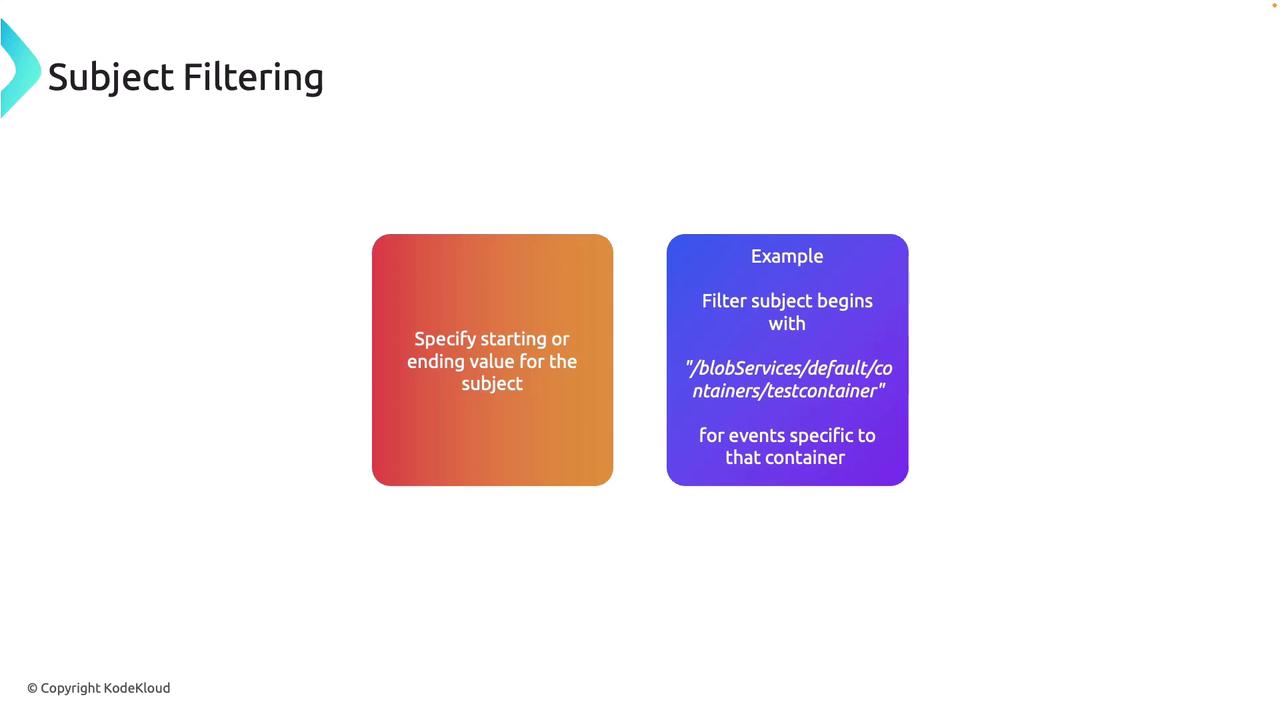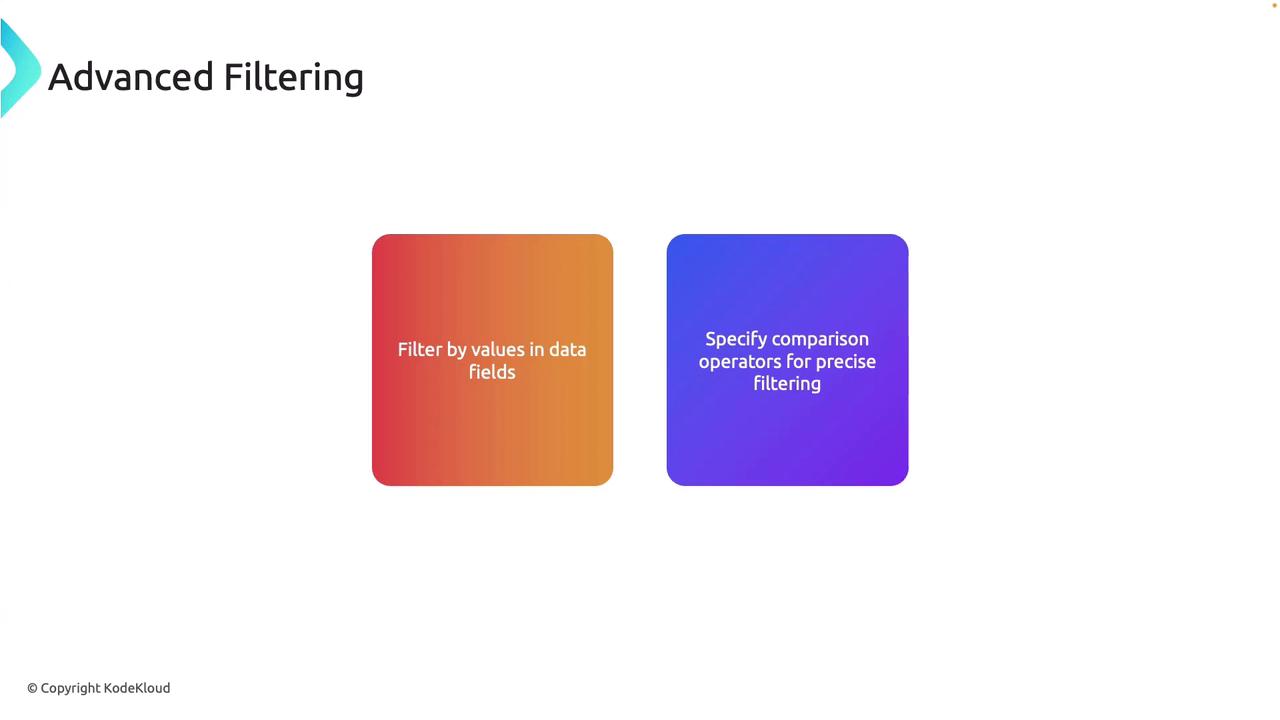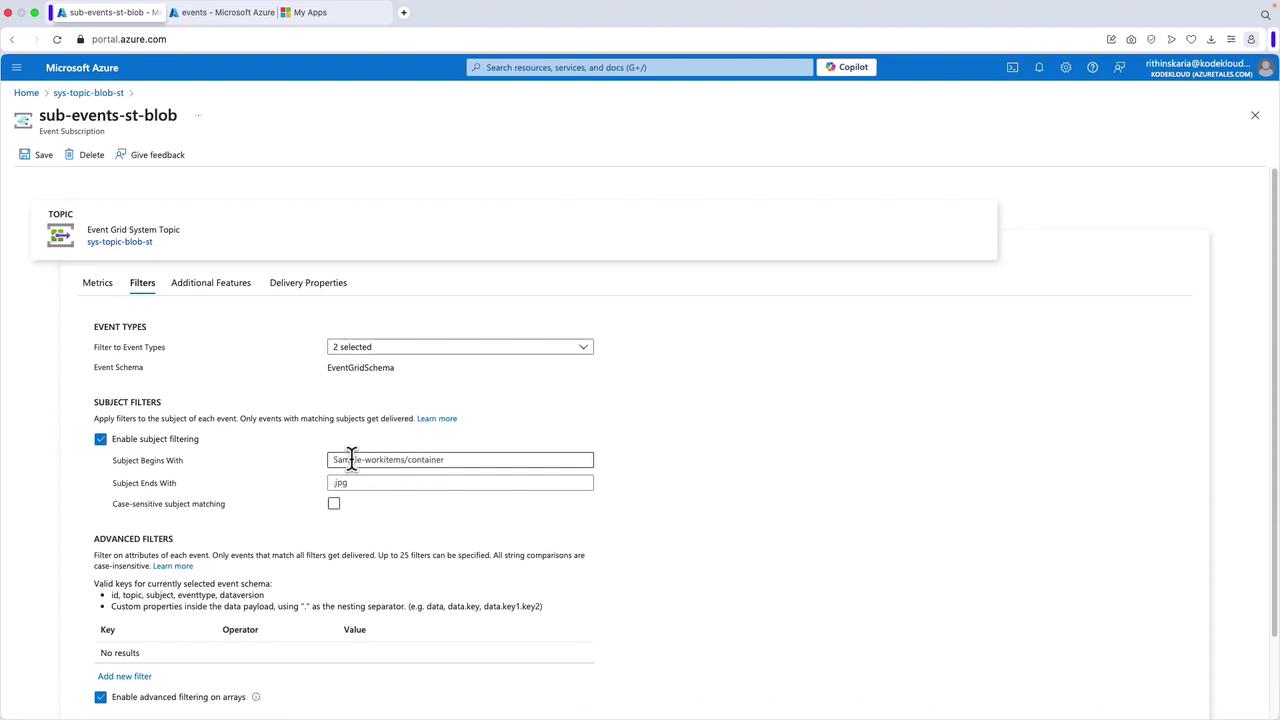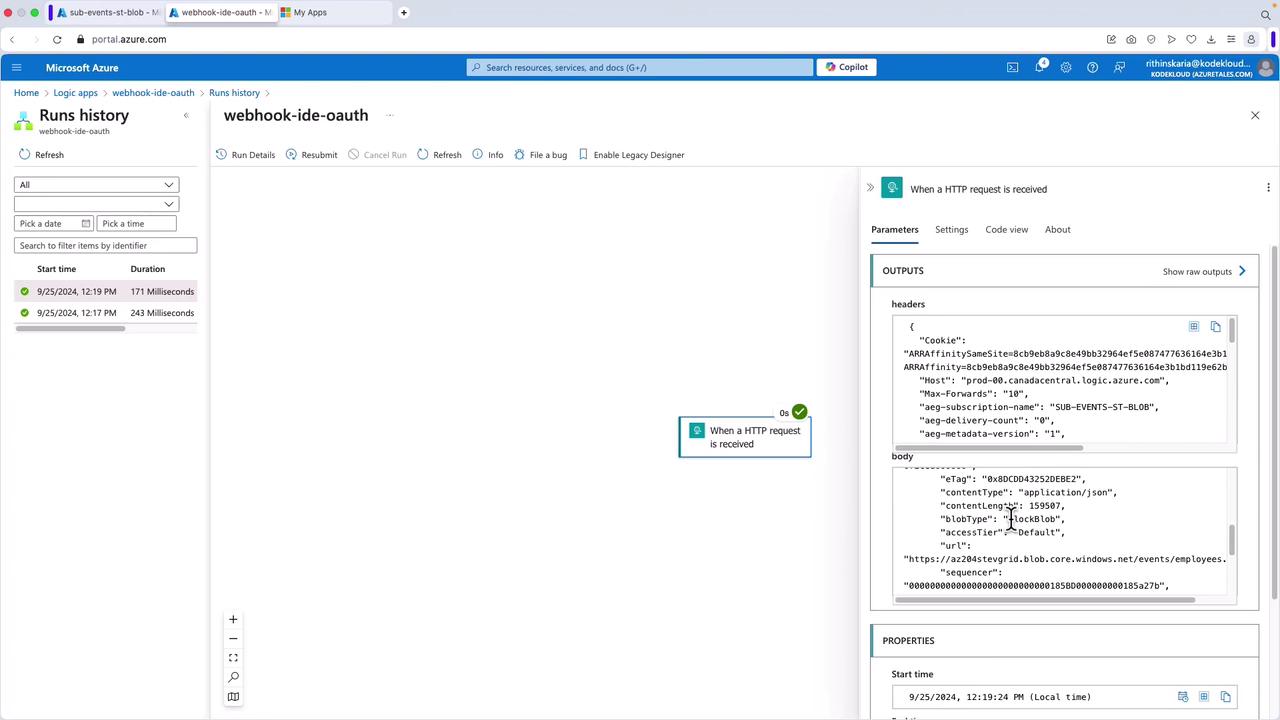AZ-204: Developing Solutions for Microsoft Azure
Exploring Azure Event Grid
Filtering Events
In this lesson, we explore how Azure Event Grid filters incoming events so that only relevant events are delivered to your endpoint. By default, all event types from the event source are sent to the subscribed endpoint. However, you can customize this behavior by configuring Event Grid to deliver only selected event types, reducing unnecessary noise and ensuring that your application processes only the events it needs.

For example, if you prefer to receive only deletion events from a storage account rather than every possible event, you can set up targeted filtering rules.
Subject Filtering
Subject filtering allows for refining events based on a resource path or subject. This is accomplished by specifying a starting or ending value for the event subject. If you work with Azure Blob Storage and need to receive events solely from specific containers (such as default or test containers), subject filtering enables you to restrict events to just those containers while ignoring all others.

Advanced Filtering
Advanced filtering offers the capability to inspect values within an event's data field for more granular filtering. This method allows you to filter based on metadata, payload content, or other specific event properties. Supported comparison operators include:
- string contains
- string ends with
- string does not begin with
- string does not end with
- is null
- number is in
- boolean equals
Using these operators, you can construct filters for complex JSON arrays within event data. This is especially useful when targeting properties like access tier, blob type, or content length exceeding a specified threshold.

Note
Advanced filtering is ideal for scenarios requiring precise control over event processing. By leveraging various comparison operators, you can effectively handle complex events tailored to your application needs.
Configuring Filters in the Azure Portal
To configure these filters, navigate to your event subscription in the Azure Event Grid setup within the Azure Portal. Under the Filters section, you can view and manage the available event types – a critical step in limiting the events that reach your endpoint.
If you enable subject filtering, you can specify a particular container name to further fine-tune which events are delivered. For instance, you might restrict events to those where the subject ends with a specific extension, and you even have the option for case-sensitive matching when needed.

Using Advanced Filtering in Practice
Advanced filtering is also available for a detailed inspection of event data. For example, when reviewing a captured event within a Logic App, you might observe a property in the event’s data, such as API. To filter for events where data.API equals "put blob," you would create an advanced filter with that condition. This approach empowers you to process complex JSON arrays effectively, like filtering based on blob properties.

Warning
Ensure that your filter conditions are meticulously tested to avoid inadvertently excluding important events from your workflow.
By configuring these filters, Azure Event Grid ensures that your application processes only the events relevant to your business logic, improving performance and reducing unnecessary load.
As we conclude our discussion on Event Grid filtering, proceed to the next section where we cover Event Hubs for further insights into event-driven architectures.
Watch Video
Watch video content